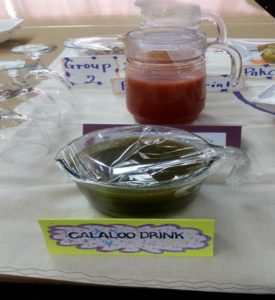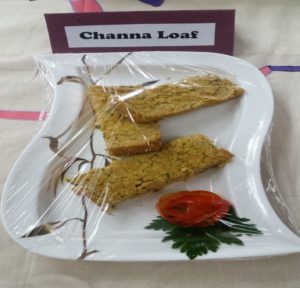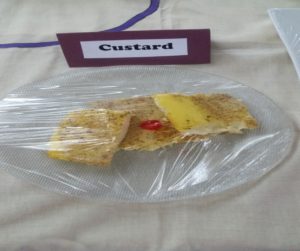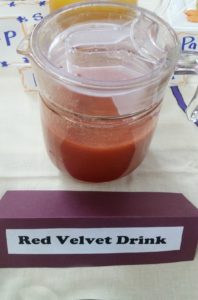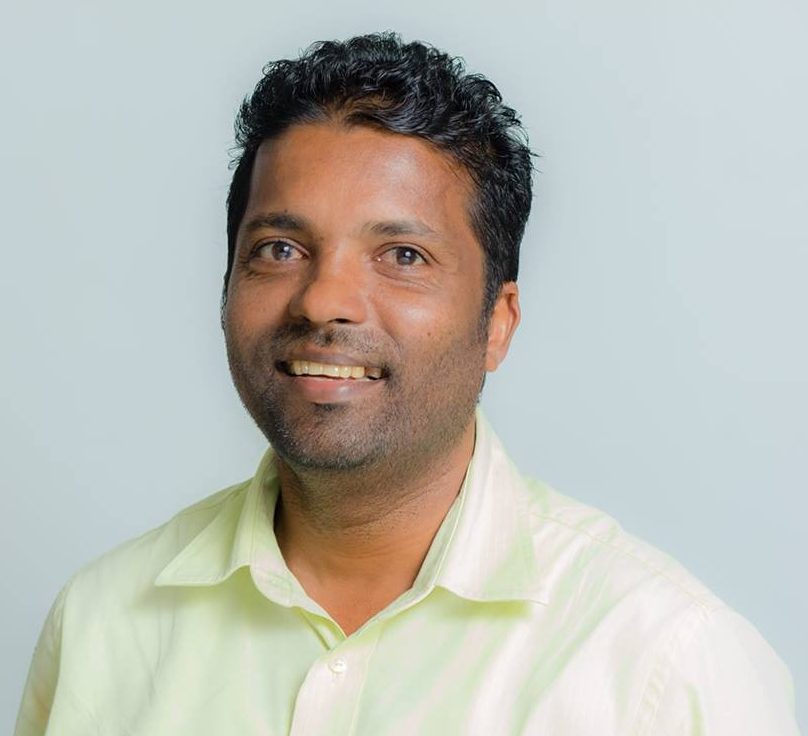
NAPS Guyana empowering PLHIV with culinary skills training
The National AIDS Programme Secretariat Guyana, with funding from the US Centers for Disease Control and Prevention Cooperative Agreement, successfully trained 18 persons in food preparation techniques and healthy eating practical sessions. Experts in the culinary arts facilitated the training at the Carnegie School of Home Economics in Georgetown.
The 12-day training activity involved participants from various National HIV Treatment and Care sites in Region 4, Georgetown.
Mr Somdatt Ramessar, Manager of the National HIV Food Bank spoke to the editor of PANCAP Newsletter about the initiative. He explained that the focus of the training was to expose the participants to healthy and safe ways to prepare foods for consumption, as well as consistent use of healthy, locally grown and inexpensive food. He underscored the importance of participants building their skills in preparing food to maintain the nutritional value.
“Building the capacity of People Living with HIV (PLHIV) so that they can live more productive lives is the focus of the National Programme,” stated Somdatt, “hence the aim of the training activity was to build the capacity of participants so that they can contribute meaningfully to their families and be role models in their communities and resource persons within the PLHIV population”.
At the culmination of the training, participants were tasked with returning to their respective support groups and sharing the knowledge they have acquired through organized group activities.
Somdatt noted that the National Programme was particularly proud of a participant who established a local juice production business with the skills acquired from the training.
Below is an image gallery of the food products created by participants.
WHAT IS PANCAP?
PANCAP is a Caribbean regional partnership of governments, regional civil society organisations, regional institutions and organisations, bilateral and multilateral agencies and contributing donor partners established on 14 February 2001. PANCAP provides a structured and unified approach to the Caribbean’s response to the HIV epidemic, and coordinates the response through the Caribbean Regional Strategic Framework on HIV and AIDS to maximise efficient use of resources and increase impact, mobilise resources and build the capacity of partners.
What are the Global AIDS Strategy 2021–2026 targets and commitments?
If targets and commitments in the strategy are achieved:
- The number of people who newly acquire HIV will decrease from 1.7 million in 2019 to less than 370 000 by 2025
- The number of people dying from AIDS-related illnesses will decrease from 690 000 in 2019 to less than 250 000 in 2025.
- The goal of eliminating new HIV infections among children will see the number of new HIV infections drop from 150,000 in 2019 to less than 22,000 in 2025.
What are the 95-95-95 Targets for ending AIDS?
- 95% of People Living with HIV know their HIV status;
- 95% of people who know their status on treatment; and
- 95% of people on treatment with suppressed viral loads.
HELPFUL LINKS:
Global AIDS Strategy 2021–2026, End Inequalities, End AIDS
https://pancap.org/pancap-documents/global-aids-strategy-2021-2026-end-inequalities-end-aids/
Caribbean Regional Strategic Framework on HIV and AIDS (CRSF) 2019-2025
https://pancap.org/pancap-documents/caribbean-regional-strategic-framework-2019-2025/

